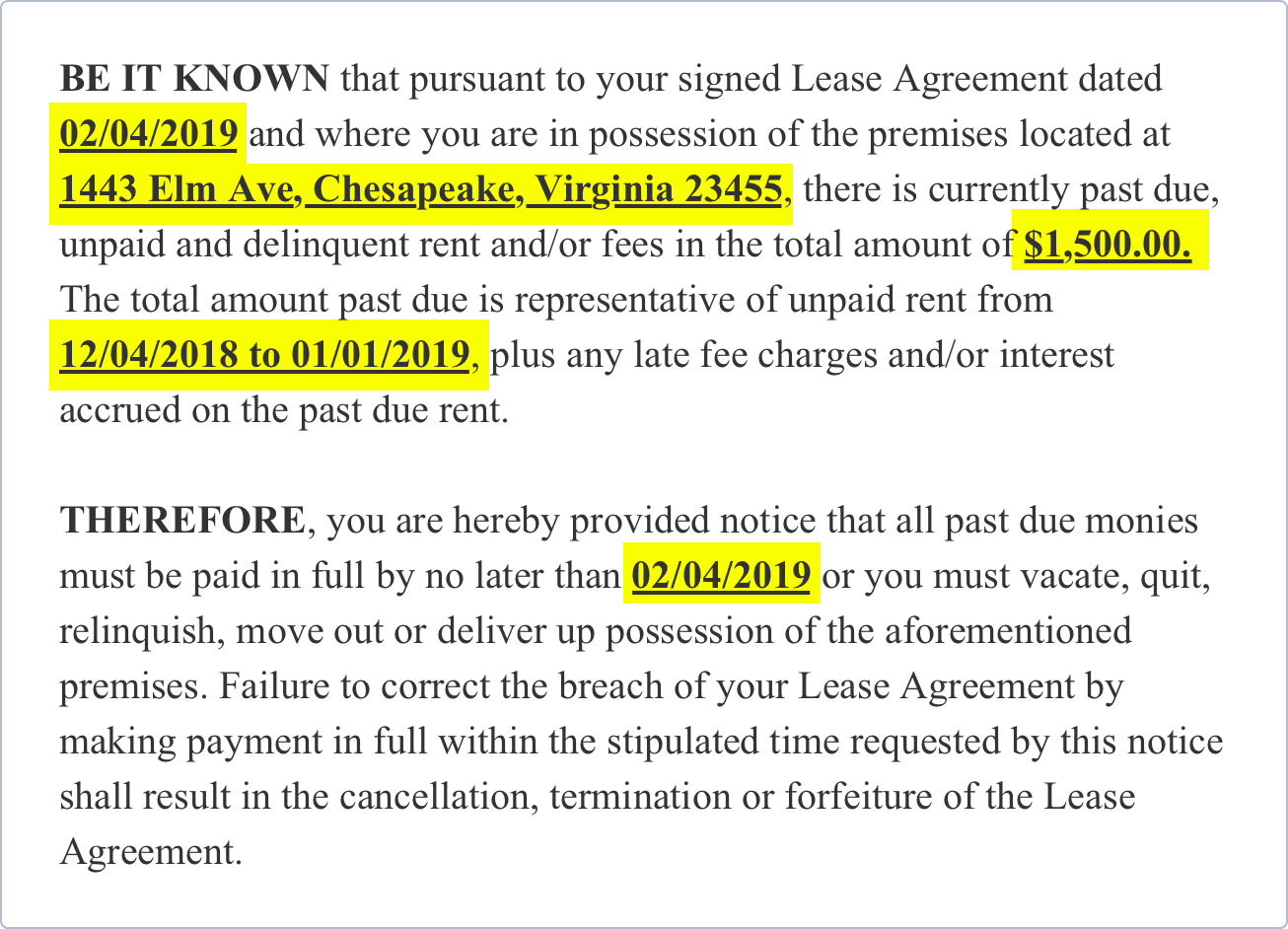For example, the tenant has the right to have visitors and guests over and to install what is necessary for cable T. It must also be in good repair pursuant to the landlord ’s implied warranty of habitability , an implied right in every written or oral residential lease. What is the landlord tenant law in PA? What are the eviction rules in PA? Under the act, a landlord doesn’t have the right to forbid overnight guests or to limit the number of visitors a tenant has in a week or month.

However, in addition to the terms of your lease, and federal and local law , there are a number of state laws designed to guide the landlord - tenant relationship. You may think that as a landlord you are not liable for your tenants ’ water bill. Well up until a recent change in the law that was true.
We reported recently that many landlords face a relentless pursuit by some debt collection companies trying to collect the debts for unpaid water bills racked up by tenants. It must be returned within days after the end of the lease. Retaliation is forbidden by Statute 250. Landlords cannot terminate a lease, refuse to renew a lease or reduce services in response to a tenant making a valid complaint, filing a complaint with a government agency or getting involved with a tenants organization. Pennsylvania rental law is largely governed by Pa.
A Landlord is obligated to supply possession of the premises as agreed in the lease. The premises must meet minimum standards of habitability including compliance with applicable building codes. A tenant and landlord may have a significant disagreement when the tenant withholds rent due to unsafe or uninhabitable conditions on the rental property. The tenant should follow the proper procedures to withhold rent.
Tenant Allowed to Withhold Rent for Failure to Provide Essential Services (Water, Heat, etc.): Yes, when an government agency or department certifies that a dwelling is uninhabitable, the tenant can elect to deposit rent into an escrow account rather than pay the landlord directly. Understanding your legal rights is a critical advantage that can help you to avoi meet, and overcome rental problems. Common sense is a personal attribute requiring consistent exercise. The second type of protections for tenants are those covered under Landlord Tenant law.

Rental issues such as repairs and maintenance and eviction procedures are governed by Landlord Tenant law. The contract is between the water provider and the consumer, not the landlord. The problem for a tenant would be that they could get into a long dispute with the landlord and end up with a retaliatory eviction.
This responsibility of the landlord extends not alone to the individual tenant , but also to his family, servants and employees, business visitors, social guests, and the like. The retention of control of the stairways, passages, roadways and other common facilities of a tenement building or multiple dwelling premises places upon the landlord , or other possessor, the duty of reasonable care for safety in use. At the end of the leasing term, landlords are required to return the full security deposit amount to the tenant within days after the tenant moves out. Landlords must also comply with required federal disclosures regarding lead-based paint on the property, or face hefty financial penalties. One way would be to pay the water authority and sue him immeditely for reimbursement.

The Authority may not require the full amount to be paid in order to turn the water on. When the hearing date comes, you can make a settlement to set off water and sewer payments against the rent. Funds must be placed in an escrow account and pay out interest to the tenant every two years. If the lease states that the Tenant is responsible for all utilities associated with the Property, then the water bill is their responsibility. Sounds simple and straightforwar right?
This deadline can be changed if previously agreed to by the tenant in the lease or rental agreement. A lease or rental agreement should include a “utilities” or a “utilities and repairs” clause that specifies who is responsible for what services and bills. Typically, landlords pay for garbage and sometimes water (if there is a yard). Tenants usually pay for other services, such as gas and electricity. Landlord–tenant law governs the rights and responsibilities of leasehold estates, like in an apartment complex.
It includes elements of both real property law (specifically conveyances) and contract law.
No comments:
Post a Comment
Note: only a member of this blog may post a comment.